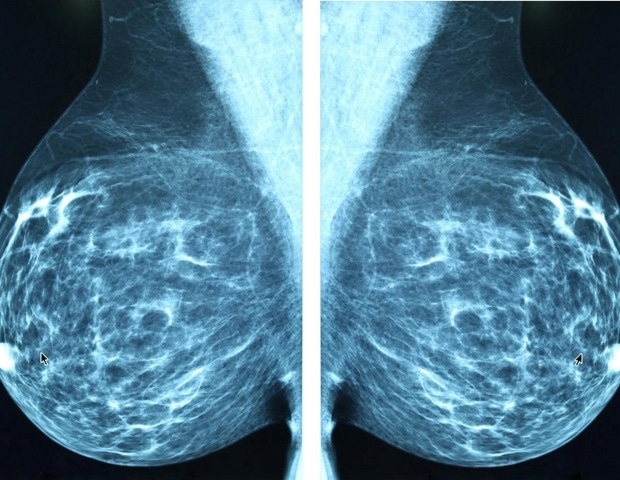When biomedical researchers need to test their latest ideas, they often turn to engineered human tissue that mimics the responses in our own bodies. It’s become an important intermediary step before human clinical trials.
One…

When biomedical researchers need to test their latest ideas, they often turn to engineered human tissue that mimics the responses in our own bodies. It’s become an important intermediary step before human clinical trials.
One…

Paying Anthropic customers can now teach their Claude new tricks, which the company calls Skills.
Despite much talk about superintelligence, AI models can be clueless when it comes to interacting with specific applications. Sure, they can parse…

There is no safe amount of alcohol consumption when it comes to your risk for dementia, according to a recent study.
While past research has suggested that moderate alcohol consumption may even be associated with some health benefits, more recent…

Two Russian cosmonauts are back inside the International Space Station after conducting a spacewalk to install a semiconductor materials experiment, as well as retrieve and jettison a no-longer-needed camera from the exterior of the orbiting…

As cancer survivorship rises, many people living with or beyond cancer face lasting physical and emotional challenges – particularly anxiety and depression, which affect about 30% of this population. Emotional distress is often…

New data presented at the 2025 European AIDS Clinical Society (EACS) Congress suggest that a once-weekly oral regimen combining islatravir and lenacapavir could mark a major advance in HIV treatment convenience. Findings from a Phase 2 trial (NCT05052996) showed that people with HIV-1 who switched from daily antiretroviral therapy to this weekly two-drug regimen maintained full viral suppression through 96 weeks, with no cases of virologic failure or drug resistance.
The study enrolled adults who were already virologically suppressed on a standard daily combination of bictegravir, emtricitabine, and tenofovir alafenamide. Participants were randomised to continue daily therapy or to switch to once-weekly islatravir 2 mg plus lenacapavir 300 mg. Of the 52 participants who began the once-weekly regimen, 47 continued into the 48-week extension phase, completing nearly 2 years of follow-up.
At 96 weeks, all participants on the islatravir-lenacapavir combination maintained undetectable viral loads, and mean adherence-assessed by pill count was 99.3%. No emergent resistance to either agent was observed, and safety data remained favourable throughout the study period.
Treatment with the once-weekly regimen was well tolerated. Just under one in five participants (19.2%) experienced mild or moderate drug-related side effects, and no severe adverse events related to treatment were reported. Two participants discontinued the study, though neither due to drug-related effects.
CD4+ T-cell counts showed minimal changes, with a mean decrease of 33 cells/μL (95% CI: −86 to 20), while median weight and BMI remained stable over 2 years. The consistent efficacy, safety, and adherence profile suggest that weekly oral dosing could provide a simpler alternative for people living with HIV who wish to avoid daily tablets or injectable regimens.
The promising Phase 2 results underpin ongoing global Phase 3 trials (ISLEND-1 and ISLEND-2) which aim to confirm the efficacy and safety of once-weekly oral islatravir plus lenacapavir as a complete regimen for HIV-1. If successful, this would represent the first fully oral, once-weekly treatment option for people living with HIV.
Researchers at EACS 2025 emphasised that such simplified dosing could improve quality of life and adherence, supporting long-term viral suppression and reducing treatment fatigue among patients.
By Ada Enesco
Colson AE et al. Oral weekly islatravir plus lenacapavir in virologically suppressed people With HIV-1: 96 week outcomes from a phase 2 study. PS15.5.LB. EACS 2025, 15-18 October, 2025.
Source : European Medical Journal

Researchers at Tufts University School of Medicine and Tufts Graduate School of Biomedical Sciences have found a surprising connection between a fungus associated with alcohol use disorder and the brain’s dopamine reward pathway….

Noor NanjiCulture reporter
 Getty Images
Getty ImagesGrowing up, Reese Witherspoon’s dad was a huge James Bond fan – which meant she also watched a lot of 007 films.
But she…

For those who found themselves perplexed while watching this week’s season 28 premiere of South Park by the strange new trend at the local elementary school, where kids keep saying “6, 7” to their own inscrutable delight: you are not…

Breast cancer is the most common cancer among women worldwide (WHO, 2023). The Dr. Margarete Fischer-Bosch Institute of Clinical Pharmacology (IKP) has now developed a new therapy in a clinical study that tailors hormone treatment…